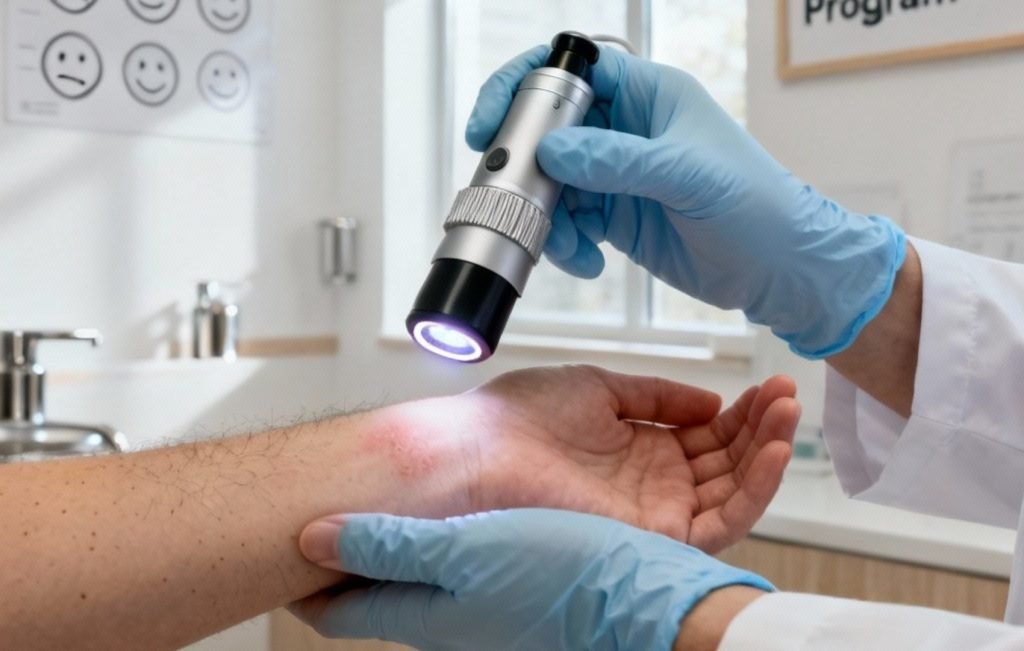Rashes and Risk: What Your Skin Says About Your Mental Health

Last Updated on October 14, 2025 by Team MSW
Your skin might be talking — and not just about sunscreen. New research presented at the European College of Neuropsychopharmacology (ECNP) suggests that common skin symptoms like rashes, itching, or light sensitivity could flag higher risks of depression and suicidal thoughts in people experiencing a first episode of psychosis.
In a study of 481 patients, those with initial skin issues were far more likely to report suicidal thoughts or attempts after four weeks of treatment — about 25% versus just 7% in those without skin problems. That’s a practical, observable signal clinicians and families can watch for, right from day one.
What makes this truly noteworthy is the simplicity and potential impact of the marker. Skin and brain share developmental roots in the ectoderm, and they may be linked through inflammatory pathways.
That biological connection could explain why dermatological symptoms align with worse short‑term psychiatric outcomes.
As lead researcher, Dr. Joaquín Galvañ put it:
“After 4 weeks of follow-up, patients with a first episode of psychosis presenting with skin conditions experienced higher levels of depression and risk of suicide… Our findings suggest that dermatological symptoms may represent a marker of illness severity and poor short-term outcomes.”
For those who are caregivers, spouses, or supporting grandparents — this is actionable knowledge. You don’t need a lab test to notice a new rash or persistent itching.
If a loved one is navigating early psychosis, flagging skin changes to the care team could prompt closer monitoring and faster support.
And even beyond psychosis, independent experts note this line of inquiry may illuminate broader links between skin and mental health across conditions like anxiety, depression, or bipolar disorder. Professor Eric Ruhe, who was not involved in the study, emphasized the promise of the approach:
“These results need replication… but might indeed show a new link between skin and psychopathology.”
The takeaway is encouraging: simple, visible cues could help clinicians identify who might need more intensive follow‑up sooner — potentially improving outcomes when it matters most. It’s a reminder that health signals can show up in unexpected places, and paying attention to them can make a real difference.
For full details and context, read the original report at ScienceDaily: Your skin could warn of hidden mental health trouble.





